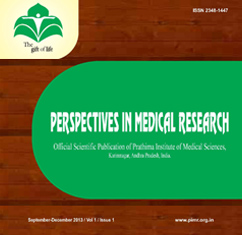Evolution from peripartum cardiomyopathy to dilated cardiomyopathy: time to halt the progression
Keywords
Antenatal cases are often latched to the strings of dilemma. Young women arrive in a healthy condition to the outpatient department and may collapse suddenly. Unexpected morbidity and mortality in a healthy young pregnant lady are usually associated with peripartum cardiomyopathy [PPCM]. 1 PPCM is diagnosed more often due to the surge in requisitions for 2D-Echo in pregnancy. To diagnose such cases, one should have a high degree of clinical suspicion and knowledge of the clinical condition. Unexplained dyspnoea in the last trimester, during labour and postpartum, should arouse a clinical suspicion of PPCM which is diagnosed (confirmed by classical 2-D Echo features). 2
The problem arises during the follow-up of patients by the cardiologist/internist/obstetrician, in the postpartum period for six months. Active follow-up with inotropes and serial 2-D-Echo’s will converge on the cases which resolve to near normal EF and no symptoms. 3, 4
The patients who do not report for the follow-up present with severe dyspnoea and it worsens in pregnancy, during the first and second trimesters. The 2-D-Echo report of these patients shows a picture of dilated LV with EF>30% (dilated cardiomyopathy). A surge in the cases of DCMP (Dilated cardiomyopathy) has been observed in the first and second trimesters which must be managed by immediate medical termination of pregnancy, for preventing maternal morbidity and mortality due to the worsening hemodynamic changes. 5, 6
Subsequently, the management of these cases is mainly by inotropes and selective Beta blockers. The prognosis for these patients is very guarded. 7 We need to have strategies and clinical interventions in place to prevent the progression of PPCM to DCMP which are as follows:
-
Routine 2D-Echo should be performed in the first trimester or whenever the patient reports for the first-antenatal checkup, whichever is earlier.
-
To get baseline data of the patient’s cardiac status, early diagnosis of dilated cardiomyopathy can be done.
-
Routine 2D-Echo should be also performed in the last trimester for every ante-natal woman to diagnose asymptomatic PPCM. 8
-
All patients of PPCM should be followed up for six months postpartum by clinical assessment and 2D-Echo.
-
Early diagnosis and aggressive management and follow-up of PPCM cases is mandatory to prevent progression to DCMP.
-
Early diagnosis of the DCMP is lifesaving, especially in early pregnancy. 9
-
Patients and family of the DCMP should be counseled for cardiac transplantation which is the only definitive treatment. 10
Therefore, it is the teamwork of the Obstetrician and Cardiologist to take proactive steps to prevent the progression of PPCM cases to DMP.


